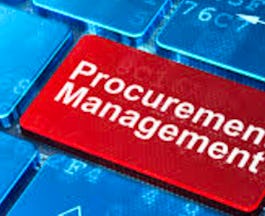Filter by
The language used throughout the course, in both instruction and assessments.
850 results for "risk management"

Skills you'll gain: Data Analysis, Data Visualization, Leadership and Management, Problem Solving, Risk Management

University of Pennsylvania
Skills you'll gain: Risk Management, Leadership and Management, Investment Management, Regulations and Compliance, Business Analysis, Decision Making, Strategy and Operations, Performance Management, Strategy, Critical Thinking, Financial Analysis, Business Research, Business Transformation, Change Management, Correlation And Dependence, Finance, Market Analysis, Conflict Management, Organizational Development, Supply Chain and Logistics, Human Resources, Innovation, Leadership Development, People Development, Resilience, Supplier Relationship Management

Rutgers the State University of New Jersey
Skills you'll gain: Procurement, Customer Relationship Management, Leadership and Management, Negotiation, Supplier Relationship Management

Skills you'll gain: Leadership and Management, Risk Management
 Status: Free
Status: FreeUniversity of California, Irvine
Skills you'll gain: Leadership and Management, Project Management, Risk Management, Planning, Communication

IESE Business School
Skills you'll gain: Finance, Financial Accounting, Accounting, Investment Management, Financial Management, Financial Analysis, Leadership and Management, Risk Management, Corporate Accouting, Market Analysis, Management Accounting

University of Pennsylvania
Skills you'll gain: Business Analysis, Data Analysis, Finance, General Statistics, Probability & Statistics, Financial Analysis, Statistical Analysis, Forecasting, Mathematics, Spreadsheet Software, Statistical Tests, Basic Descriptive Statistics, Data Model, Mathematical Theory & Analysis, Risk Management, Probability Distribution, Decision Making, Investment Management, Accounting, Leadership and Management, Regression, Financial Accounting, Microsoft Excel, Linear Algebra, Performance Management, Cash Management, General Accounting, Accounts Payable and Receivable, Generally Accepted Accounting Principles (GAAP), Computer Programming

Duke University
Skills you'll gain: BlockChain, FinTech, Finance, Algorithms, Cryptography, Payments, Banking, Risk Management, Contract Management, Computational Logic, Innovation, Regulations and Compliance, Securities Trading, Strategy and Operations, Cyberattacks, Investment Management, Security Engineering

Skills you'll gain: Adaptability, Business Analysis, Collaboration, Communication, Planning, Strategy

Rutgers the State University of New Jersey
Skills you'll gain: Data Analysis, Supply Chain Systems, Supply Chain and Logistics, Leadership and Management, Strategy and Operations, Inventory Management, Operations Management, Business Analysis, Planning, Market Analysis, Strategy, Business Intelligence, Process Analysis, Business Process Management, Forecasting, Warehouse Management, Data Management, Probability & Statistics, Statistical Analysis, Customer Analysis, General Statistics, Performance Management, Statistical Visualization, Data Model, Regression, Business Research, Shipping and Receiving, Statistical Tests, Supplier Relationship Management, Basic Descriptive Statistics, Retail Sales, Data Visualization, Data Science

University of Leeds
Skills you'll gain: Leadership and Management, Organizational Development, Project Management, Risk Management, Strategy and Operations, Decision Making, Performance Management
Searches related to risk management
In summary, here are 10 of our most popular risk management courses
- Supply Chain Management and Analytics: Unilever
- The Materiality of ESG Factors: University of Pennsylvania
- Global Procurement and Sourcing: Rutgers the State University of New Jersey
- Risk Management in Personal Finance: SoFi
- Управление рисками проекта и изменениями: University of California, Irvine
- Think like a CFO: IESE Business School
- Business and Financial Modeling: University of Pennsylvania
- Decentralized Finance (DeFi): The Future of Finance: Duke University
- Certified Business Analysis Professional™ (CBAP®): Starweaver
- Supply Chain Analytics: Rutgers the State University of New Jersey











